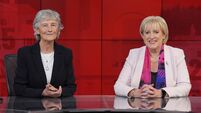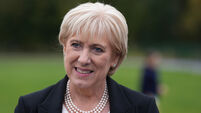Paul Hosford: Brushing off its blunders, Sinn Féin’s poll rise speaks volumes
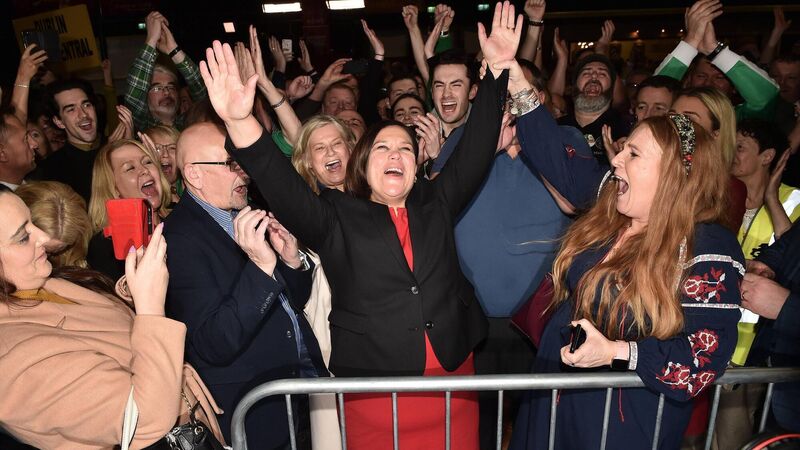
Sinn Féin leader Mary Lou McDonald celebrates with her supporters after being elected at the RDS Count centre on February 9, 2020 in Dublin. Picture: Charles McQuillan/Getty Images
In the days after the election in February last year, the watchword was "change".
The Irish people had, it was claimed, voted for a transformative, sweeping change in how we do business. But, while Sinn Féin's TDs and activists talked up how it had "won" the election with 24.5% of first-preference votes, the seat numbers told a different story.
From the off, it was clear that despite attracting 240,000 more first-preference voters than in 2016, Sinn Féin simply did not have the numbers to form a Government. Even attracting the left and centre-left parties would have meant Sinn Féin needed 14 of 21 remaining TDs after Fianna Fáil and Fine Gael both said that they would not sit down with Mary Lou McDonald.
While some on the side of the other two medium-sized parties glibly said that this was possible, the mathematics of the situation simply didn't add up. Which, in a way, was not entirely a bad thing for Sinn Féin.
From the Opposition benches (or, to be accurate, the seats across the Convention Centre), Sinn Féin has focused on health, housing, and the weaker points of the Coalition's relationships, thus presenting itself as the only true alternative.
With Ms McDonald, the party presents her not as the leader of the Opposition, but the Taoiseach-in-waiting, the rightful holder of the office who will ascend to the throne when the time comes. It is a savvy tactic from Sinn Féin which allows Ms McDonald to transcend day-to-day politics and mostly be seen going toe-to-toe with Taoiseach Micheál Martin.
For the most part, it has worked, as Ms McDonald's most able front-benchers — Eoin Ó Broin, Pearse Doherty, and Louise O'Reilly — have done the heavy lifting of Government critique.

This critique has worked best when focused on policy, as the pandemic has been a minefield for many in Opposition as they try to balance criticism of the Government without criticising or undermining the overall public health message.
When voters were asked last February about their reasons for voting as they did, most said that health and housing were the key issues.
While health has been dominated by Covid and its impact, housing has been fertile ground for criticism of the Government as the pandemic highlights the faultlines in the housing market and more of the so-called Generation Rent sees home-ownership drift out of its reach.
But Sinn Féin's impressive polling — it has not once dipped below its 2020 share of first-preferences in opinion polls — is not just down to having able TDs who can needle the Government.
In Opposition, the party has shown an uncanny ability to shake off controversies and emerge not just unscathed, but seemingly the stronger for it.
In December, when Sinn Féin TD and chairman of the Public Accounts Committee Brian Stanley tweeted about the Narrow Water ambush, a 2017 tweet about Leo Varadkar also came to light. The Tánaiste felt this tweet was homophobic, a charge Mr Stanley denied, while also offering an apology.
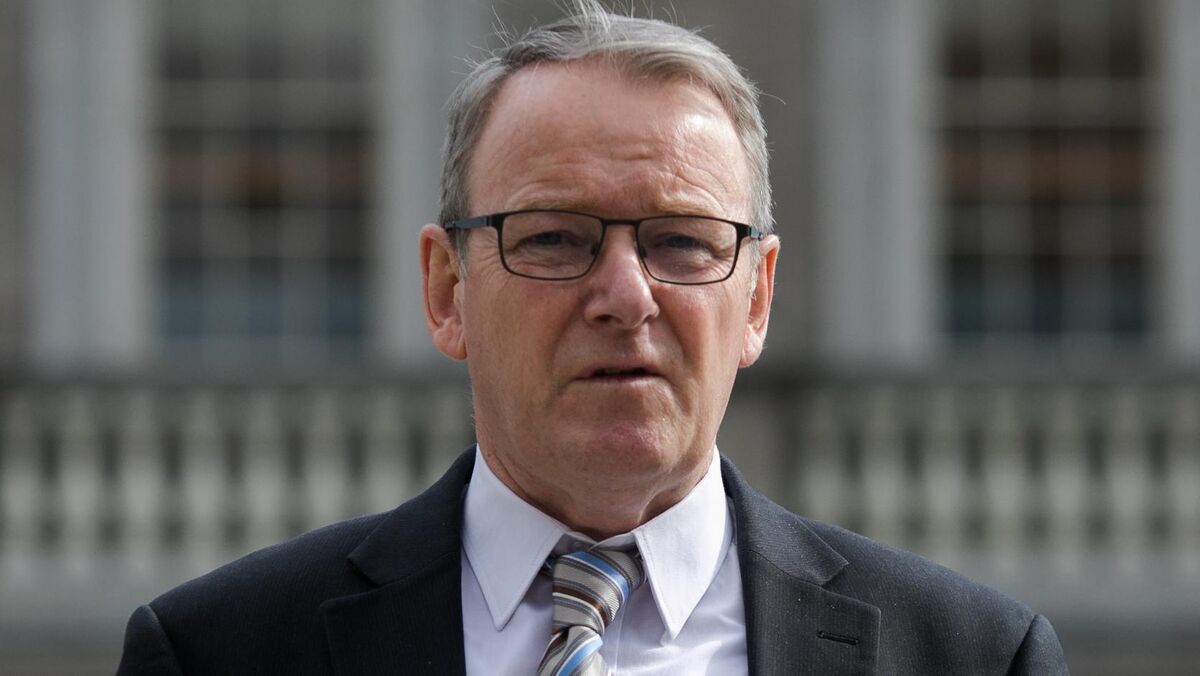
After taking a couple of weeks off and without facing the press or his committee, Mr Stanley resumed his role and the chair of the powerful PAC.
At the same time, the former chairman of the party's youth wing was visited at home by a party member who told her to delete a tweet critical of the Laois-Offaly TD. The next poll after those controversies saw Sinn Féin on 32% support.
Likewise in April, when questions were raised about the party's Abú system, not only did support not waver, it rose. Then when it was revealed Sinn Féin had used volunteers posing as a market research firm to poll the public, the controversy ended with most parties accepting that it had done the same, and Mr Varadkar being accused of not paying those he had engaged to do so.
This ability to ward off controversy says a lot about how the public is perceiving Sinn Féin's work in Opposition.
While the party has made missteps and while the Taoiseach can give as good as he gets on many days with Ms McDonald, many of those who still want to see an alternative to Fine Gael and Fianna Fáil have put their faith in Sinn Féin, and that is as much the job of an Opposition party as speaking well in the Chamber.
Away from the main Opposition party, recent polling has shown a stubborn cap for the two softer left-wing parties, with Labour and the Social Democrats topping out at a combined total of around 10% of support, but averaging closer to 7%. This will be frustrating for both for two reasons.
Firstly, from the perspective of someone who watches the Oireachtas for a living, both parties have been able Opposition.
With housing top of the agenda for most of the non-Covid news cycle in the last year, the Social Democrats have contributed massively. It was co-leader Catherine Murphy who alerted the to the bulk sale of homes in Maynooth, causing the Government to change the laws governing real estate trusts.
First-time TD Holly Cairns has emerged as a star in the Dáil, housing spokesperson Cian O'Callaghan has proven to be an able questioner on the key issue, and in Jennifer Whitmore and Gary Gannon, the party has two TDs able to grab the public attention with their advocacy and passion in the Dáil.
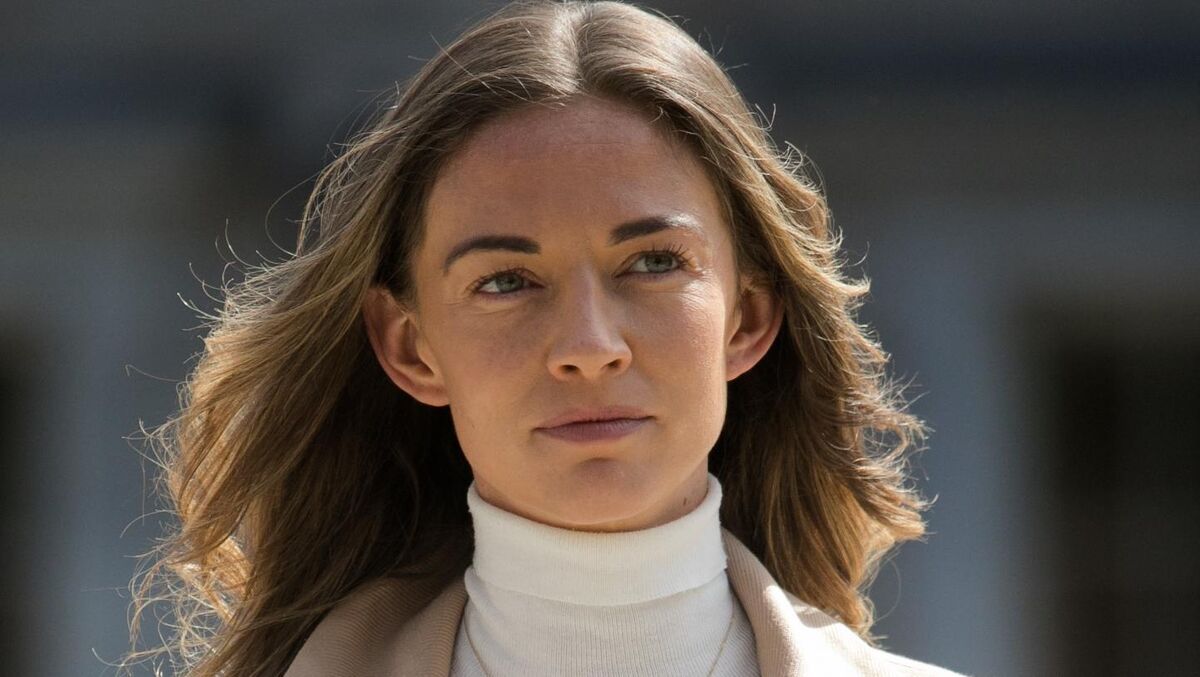
For Labour, the last year has seen them race to stand still. While huge work is ongoing behind the scenes to reinvigorate the party, its polling remains stagnant at 3%.
The fact that all of Labour's TDs are male doesn't help, but the fact that five were ministers or junior ministers in coalition with Fine Gael is the bigger hurdle. Those who voted for Labour in 2011 and felt burned by the party have not returned (and may never return), with the Social Democrats offering an alternative.
The second reason that the parties will be frustrated is that they are fighting for the same demographic and, while that is happening, speculation will always insist that they merge.
For People Before Profit and Solidarity, the Government's moves around the PUP and the treatment of the Debenhams workers have given them plenty of ammunition. Adding Paul Murphy to the PBP stable shows that cohesion is not a pipe dream for the left. Richard Boyd Barrett has been one of the best orators in the Dáil for many years and has continued in that vein.
Among the independents, Catherine Connolly, surprisingly elected as Leas Ceann Comhairle, and Thomas Pringle have each been excellent, with Pringle's ability to riff on pop culture and his very entertaining Twitter page particularly engaging.
For the Rural Independent Group, Carol Nolan has been a standout as the group pushed back on lockdowns and fought for religious gatherings to be resumed.




